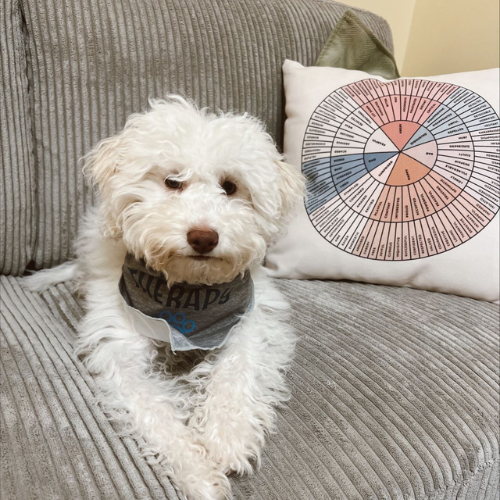Avoidant/Restrictive Food Intake Disorder
ARFID is more than picky eating — it’s a serious disorder that impacts physical and emotional health.
ARFID treatment at Magnolia Creek
Avoidant/restrictive food intake disorder (ARFID) can stem from a multitude of issues, including lack of appetite or interest in eating, sensory sensitivities, traumatic experiences, or an intense fear of negative consequences from eating. That’s why our team of licensed clinicians and dietitians works with each client to create a treatment plan that addresses the “why” behind their food avoidance — not just the symptoms. From initial assessment through every step of treatment, we focus on helping individuals restore their nutritional health, rebuild trust in food, and increase variety and flexibility in their eating patterns.

About ARFID
- While individuals with ARFID don't experience body image issues or preoccupation with weight or size, ARFID can result in malnutrition, growth delays, and other serious medical complications.
- ARFID often co-occurs with other disorders, such as anxiety disorders, autism spectrum disorder (ASD), and obsessive-compulsive disorder (OCD).
- Among individuals who screened positive for ARFID, the most commonly reported characteristics were a lack of interest in eating (80%), avoidance of food due to sensory issues (55.4%), and fear of negative consequences from eating, such as choking or vomiting (30.8%).
- 35% of individuals who screened positive for ARFID reported experiencing suicidal thoughts, but just 2% were actively receiving necessary eating disorder treatment.
FAQs about ARFID
What is ARFID?
Avoidant/restrictive food intake disorder (ARFID) is a severe eating disorder marked by extreme avoidance of certain foods or a general lack of interest in eating. Unlike other eating disorders, ARFID isn’t about concerns about weight or body image. Instead, it typically stems from sensory sensitivities, fear of choking or vomiting, or past traumatic experiences related to food.
ARFID can lead to nutritional deficiencies, weight loss, delayed growth, and social withdrawal. It affects both children and adults and often co-occurs with anxiety, autism spectrum disorder, or OCD. Without proper treatment, ARFID can significantly affect physical health, emotional well-being, and overall quality of life.
What are the signs + symptoms of ARFID?
ARFID may cause a variety of symptoms and behaviors, including:
- Extreme pickiness or avoidance of specific foods or entire food groups
- Noticeable weight loss or lack of normal growth
- Nutrient deficiencies or reliance on supplements to meet basic nutritional needs
- Little or no interest in eating or food
- Anxiety or distress during mealtimes
- Avoidance of social situations involving food or eating
- Sensory sensitivities to food textures, smells, or appearances
- Fear of choking, vomiting, or other adverse consequences of eating
If left untreated, ARFID can lead to serious medical and emotional complications. Spotting the symptoms early and seeking professional support are key to improving nutritional outcomes and restoring a balanced relationship with food.
When is it time to seek professional support for ARFID?
You or your loved one needs to seek professional treatment for ARFID when food avoidance begins to impact physical health, emotional well-being, or daily functioning. Warning signs include significant weight loss, poor growth, nutritional deficiencies, intense anxiety around food, or social withdrawal due to eating difficulties.
If mealtimes are consistently stressful or food and eating restrictions interfere with school, work, or relationships, it’s important to consult a medical or mental health professional. Early intervention can prevent long-term complications and support lasting recovery.
Step into healing at your own pace.
Magnolia Creek offers two distinct levels of care — residential treatment and partial hospitalization — with a focus on tailoring each client’s treatment plan to their unique diagnosis and recovery goals.
How We Treat
More Resources

Understanding the Signs + Symptoms of Anorexia Nervosa

When Healthy Becomes Harmful: Understanding Orthorexia

When Do Eating Disorders Become Life-Threatening?
Renew your hope at Magnolia Creek.
Begin your journey toward a healthier, more hopeful future. Contact us today or complete our form to connect with an admissions specialist who will guide you to the right program. Healing is just a call away.
Complete our contact form
Your privacy is our priority. All communication is completely confidential.












































